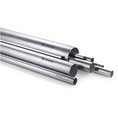What is stronger: steel pipe or iron pipe?
Introduction:
The question of whether a steel pipe is stronger than an iron pipe is a common one. Both steel and iron pipes are widely used in various industries, including construction, plumbing, and manufacturing. While they may appear to be similar, there are distinct differences between the two materials that determine their strength and durability. In this article, we will explore the characteristics of steel and iron pipes and compare their strength to determine which one comes out on top.
Steel Pipes:
Steel is an alloy made primarily of iron with a small percentage of carbon. The addition of carbon provides steel with enhanced strength and hardness, making it an excellent material for pipes.
1. Strength and durability:
Steel pipes are known for their exceptional strength and durability. The high carbon content in steel contributes to its superior tensile strength, enabling it to withstand higher pressures and heavy loads. Steel pipes are widely used in industries where strength and durability are crucial, such as oil and gas, construction, and infrastructure.
2. Resistance to corrosion:
One of the significant advantages of steel pipes is their resistance to corrosion. The carbon content in steel creates a protective barrier that prevents rust and corrosion, even when exposed to moisture or harsh environments. This resistance to corrosion increases the lifespan of steel pipes, making them an excellent choice for applications that require long-lasting materials.
3. Flexibility and versatility:
Steel pipes possess excellent flexibility and versatility, allowing for easier installation and adaptation to various shapes and sizes. They can tolerate bending and can be easily welded, making them suitable for complex construction projects or systems that require customization. The flexibility of steel pipes also minimizes the risk of cracks or leaks, ensuring a reliable and safe infrastructure.
Iron Pipes:
Iron pipes, also known as cast iron pipes, have been widely used in plumbing systems for centuries. They were the go-to choice for various applications before the advent of modern steel pipes. Let''s explore the characteristics of iron pipes and how they compare to steel pipes in terms of strength.
1. Strength and durability:
While iron pipes are known for their strength, they are generally not as strong or durable as steel pipes. Cast iron pipes have a higher ductility but lower tensile strength compared to steel. This makes them more susceptible to cracks and breaks under high-pressure conditions or heavy loads. Iron pipes are still used in specific applications where high strength is not crucial, such as underground drainage systems or small-scale plumbing projects.
2. Resistance to corrosion:
Unlike steel pipes, iron pipes are prone to rust and corrosion over time. The absence of carbon in iron makes it more susceptible to oxidation when exposed to moisture or chemicals. To counteract this issue, iron pipes are often coated with protective substances or treated internally with anti-corrosive materials. However, this added protection does not offer the same level of resistance as steel pipes.
3. Sound and heat insulation:
One advantage of iron pipes over steel pipes is their superior sound and heat insulation properties. Iron pipes have excellent acoustic insulation, reducing noise transmission through the plumbing system. Additionally, cast iron pipes are better at retaining heat, making them suitable for conveying hot fluids or in applications where temperature control is important.
Comparison and Conclusion:
In comparing steel pipes and iron pipes, several factors come into play. Steel pipes outperform iron pipes in terms of strength, durability, and resistance to corrosion. The high carbon content in steel provides it with superior tensile strength, enabling it to withstand heavy loads and high-pressure conditions. Steel pipes are also highly resistant to rust and corrosion, ensuring their longevity.
On the other hand, iron pipes have their merit in specific applications. They excel in sound and heat insulation, making them suitable for plumbing systems where noise reduction and temperature control are essential. Additionally, cast iron pipes can withstand thermal expansion better than steel pipes.
Overall, when it comes to strength and durability, steel pipes are the preferred choice in most industrial, construction, and infrastructure applications. The greater strength, corrosion resistance, and flexibility of steel pipes make them more reliable and cost-effective in the long run. However, in specific scenarios where sound insulation or thermal expansion properties are significant considerations, iron pipes may still find their relevance.
In conclusion, steel pipes are generally stronger and more durable than iron pipes. Understanding the differences between the two materials allows industries and individuals to make informed decisions when selecting the appropriate pipe for their specific needs.




